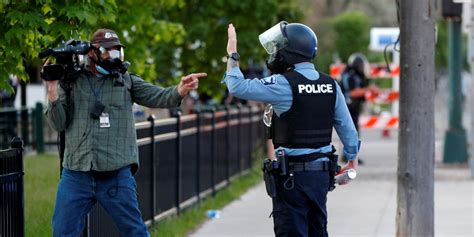Amnesty International Nigeria has raised a clarion call to the federal government, urging for an in-depth investigation into the brutal assault suffered by two journalists during the Take It Back movement’s protest on 7th April in Port Harcourt, Rivers State. The protest was part of a nationwide series of demonstrations aimed at denouncing corrupt governance practices and crackdowns on freedom of expression.
Voices from Amnesty
In a passionate plea, Isa Sanusi, Director of Amnesty International Nigeria, strongly condemned the aggression inflicted upon Charles Oporum from Channels Television and Ikezam Godswill from Africa Independent Television (AIT). The journalists were reportedly harassed and physically attacked by police officers who aimed to obstruct their coverage of the protest. Sanusi highlighted that not only were there reports of live ammunition being fired and tear gas deployed but also instances where equipment was confiscated and journalists were coerced at gunpoint to erase valuable footage.
The dire situation prompted Isa Sanusi to express his dismay, stating that such flagrant assaults on media personnel are alarmingly becoming commonplace. He remarked, “Targeting journalists in such a vicious manner as they carry out their professional duties is simply an extension of the broader agenda by Nigerian authorities to stifle dissent. These actions blatantly contravene international human rights standards as well as Nigeria’s own constitution.”
Amidst growing concerns over press freedom violations across various sectors in Nigeria, this incident serves as another stark reminder of the dangers faced by journalists striving to uphold transparency through their work.
Police Response and Defiance
Leading up to the protests organized by the Take It Back Movement, the Nigeria Police Force issued statements expressing reservations about both the timing and motives behind these gatherings. Specifically raising objections towards scheduling protests on National Police Day—a day designated by the government to honor law enforcement officials nationwide—the force questioned the underlying intentions driving such activities.
While acknowledging citizens’ constitutional rights to peaceful assembly, Force spokesperson Olumuyiwa Adejobi voiced skepticism regarding hosting demonstrations coinciding with significant national observances. The perceived clash in schedules sparked debates over potential ulterior motives fueling these protests.
Reacting against allegations insinuating malicious intent behind their demonstration date selection, Omoyele Sowore—founder of the movement—publicly refuted claims made by police authorities. Rejecting accusations meant to discredit their cause, Sowore fervently defended their right to peaceful protest despite official disapproval.
A Troubling Trend
Regrettably, incidents like those witnessed in Port Harcourt are not isolated cases but rather symptomatic of a wider trend portraying systemic police brutality targeting journalists within Nigeria. Reports indicate that over thirty-one journalists have fallen victim to various forms of assault orchestrated by law enforcement agencies in recent years.
Organizations devoted to safeguarding journalistic integrity corroborate these distressing accounts with data revealing escalating attacks against media practitioners during critical events like elections and public demonstrations across the nation. With mounting evidence pointing towards increased hostilities faced by reporters while fulfilling their duties amidst civil unrest scenarios or political rallies—such as incidents documented during #EndBadGovernance protests—the need for urgent intervention becomes apparent.
Expert Insights
Commentary provided during forums like the Civic Space Guard Conference underscored grave concerns surrounding prevailing conditions jeopardizing press freedom within Nigeria. Motunrayo Alaka—CEO at Wole Soyinka Centre for Investigative Journalism (WSCIJ)—emphasized how predominant actors within law enforcement structures contribute significantly towards perpetuating intimidation tactics targeted at silencing media voices critical of governmental practices.
Alaka lamented this worrying trend where entities tasked with upholding legal frameworks end up actively impeding journalistic endeavors geared towards promoting accountability and fostering democratic values essential for societal progress.
Through meticulous documentation efforts undertaken collectively by Press Attack Tracker under Centre for Journalism Innovation Development alongside findings outlined within forthcoming 2023 Journalism and Civic Space Research reports—a clearer picture emerges detailing prevailing threats encroaching upon press liberties throughout various operational domains nationwide.
Quest for Accountability & Upholding Rights
As calls mount demanding accountability measures be taken against perpetrators responsible for perpetrating violence against media professionals; advocacy groups advocate unyieldingly for ensuring governmental adherence towards protecting fundamental rights enshrined within constitutional provisions safeguarding free speech acts along with peaceful assembly norms.
Indeed, Amnesty International echoes sentiments resonating across diverse stakeholder circles pressing forward advocating resiliently towards preserving cherished principles underscoring civil liberties entitlements owed universally irrespective amid challenging environments confronting contemporary journalism landscapes.

